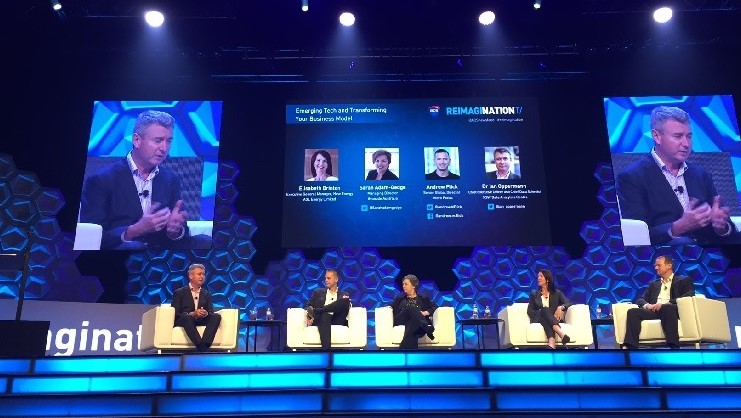What are the key solutions to harnessing emerging technology and transforming your business model?
Panellists speaking at ACS’ flagship event, Reimagination, have suggested three things: relearning, upskilling employees and putting people at the heart of digital disruption.
Avanade Managing Director, Sarah Adam-Gedge, called on Australian leaders to unlearn habits holding back the country’s progress on digital transformation.
“Leaders have a got a huge role to play around this whole change that we’re going through, which is rapid, dynamic and regarding the fourth industrial revolution.
“We should anticipate cultural resistance and embrace new technology,” she said.
Micro Focus Senior Global Director of Product Management, Portfolio and Lifecycle Management, Andrew Flick, agreed with Adam-Gedge in having leaders embrace new habits, and said grassroots initiatives were just as necessary to create a cultural change.
“We can drive the innovation agenda from the top, but then how do we measure that?
“Leaders have to empower, and set a vision and mission,” he said.
The panellists suggested solving problems through an incremental process with a strategic direction, rather than addressing them head-on without a structured plan.

L to R: Dr Ian Oppermann, Andrew Flick, Sarah Adam-Gedge, Elisabeth Brinton and moderator, Beau Tydd. Photo: Kat Stanley Photography
“You have to get really good at knowing what problem to solve, and in many cases, it’s knowing who your customer is, being laser-focused on what they need, what they don’t need, what they don’t know they need, and from that, finding out the right way to deliver that innovation.
“All of this comes back to setting a framework on this data, and taking that understanding and driving that innovation through your organisation,” said Flick.
CEO of NSW Data Analytics Centre, Ian Oppermann, said an education plan was needed to properly harness the value of emerging technology. Both Oppermann and AGL Energy Executive General Manager, Elisabeth Brinton, argued it takes humans longer to make decisions because we are wrestling with emotional and rational factors at once, and this can increase the scope for mistakes.
According to the latest ACS white paper, Data Sharing Frameworks, a majority of people are concerned about the way we share data.
Oppermann spoke about how we could accelerate our decision-making process using emerging technology while keeping this in mind.
He said taking bold risks, making things digital, asking people what they want, and then bringing those answers back to solve the digital problem is cruical in improving business models to handle data.
“Be bold and experimental, but people should remain at the heart of your innovation,” said Oppermann.
Brinton conversely said we need to step back and reflect on our habits.
“Ask yourself ‘What am I holding on to and what can I unlearn today that is going to help me be perceptive and open that can help my company make a pivot?’
“Part of data transformation is being willing to unlearn. But you have to make the space for that,” she said.
Adam-Gedge added that more diversity of skills on boards could go a long way through lifting the skills of existing board members.
“We have to put people first, then bring in technology,” she said.




.jpg)





